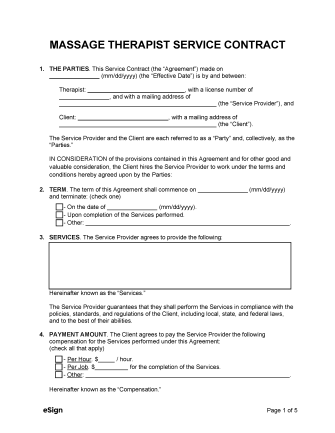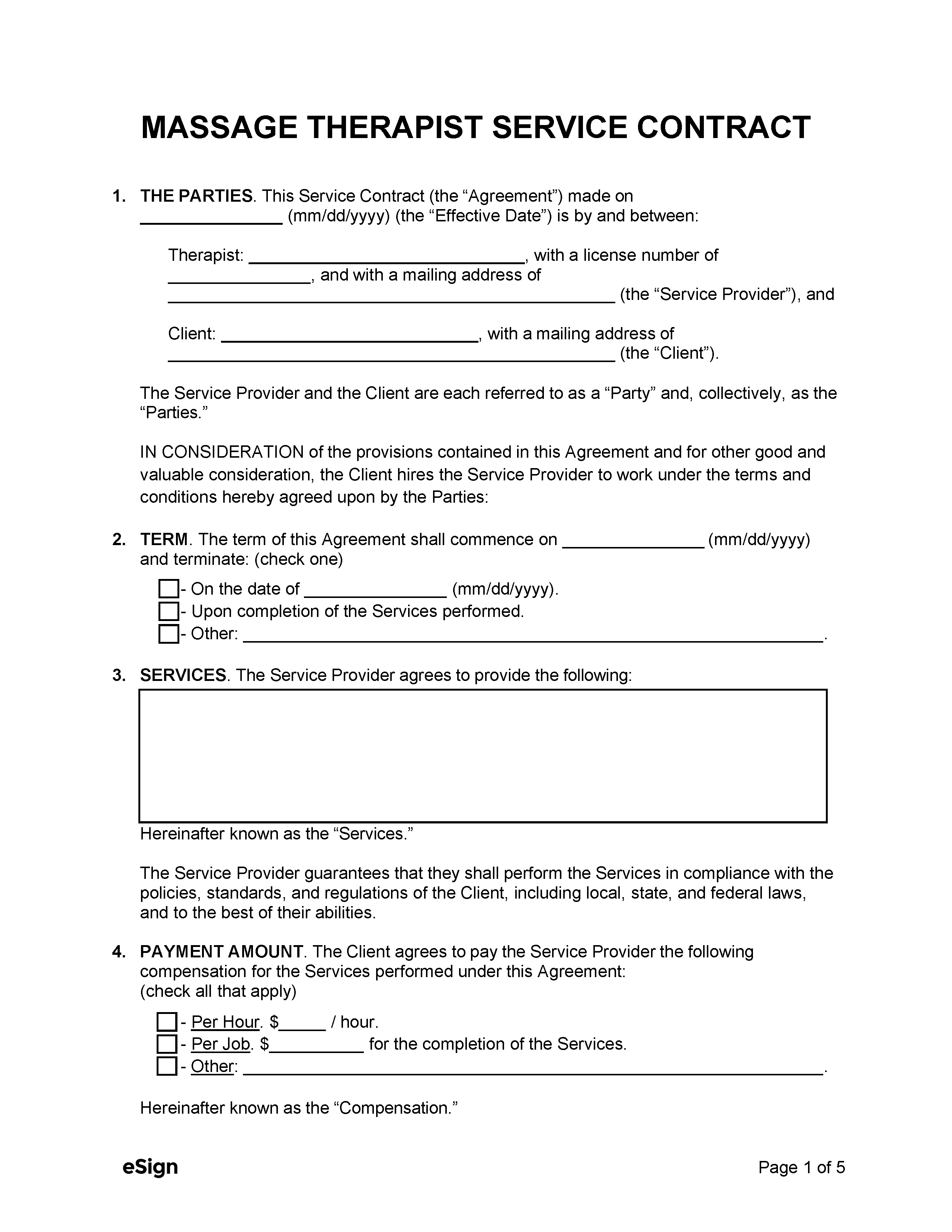Licensing
Most states require massage therapists to be licensed to practice legally.[1]
States that require licensure generally require therapists to complete a certain number of training hours from an approved school, and some require a Continuing Education Unit (CEU) renewal, typically 1-4 years.
Therapists should check with their state licensing board to verify the education and renewal requirements before offering services.
What to Include
A service contract for massage therapists should include:
- The names of the therapist and the client.
- The type of massage and treatment being offered.
- How much the services will cost.
- The way the therapist will be paid.
- Schedule of massages (for recurring clients).
- The license number of the massage therapist.
The massage therapist contract also defines the therapist as an independent contractor, responsible for their own taxes, and not an employee of the client.
Sample
Download: PDF, Word (.docx), OpenDocument
MASSAGE THERAPIST SERVICE CONTRACT
1. THE PARTIES. This Service Contract (the “Agreement”) made on [MM/DD/YYYY] (the “Effective Date”) is by and between [SERVICE PROVIDER NAME], with a license number of [SERVICE PROVIDER LICENSE NUMBER], and with a mailing address of [SERVICE PROVIDER ADDRESS] (the “Service Provider”), and [CLIENT NAMES], with a mailing address of [CLIENT ADDRESS] (the “Client”).
2. TERM. The term of this Agreement shall commence on [MM/DD/YYYY] and terminate on the date of [MM/DD/YYYY].
3. SERVICES. The Service Provider agrees to provide the following: [DESCRIBE SERVICES TO BE PERFORMED]. Hereinafter known as the “Services.”
4. PAYMENT AMOUNT. The Client agrees to pay the Service Provider $[RATE]/Hour for the Services.
5. PAYMENT METHOD. The Client shall pay the Compensation every week, beginning on [MM/DD/YYYY].
6. INDEPENDENT CONTRACTOR STATUS. The Service Provider, under the code of the Internal Revenue Service (IRS), is an independent contractor and neither the Service Provider or their employees or contract personnel are, or shall be deemed, the Client’s employees.
7. ADDITIONAL TERMS AND CONDITIONS. [ADD ADDITIONAL INSTRUCTIONS, TERMS, CONDITIONS].
IN WITNESS WHEREOF, the Parties hereto agree to the above terms and have caused this Agreement to be executed in their names.
Client’s Signature: _________________________ Date: _______________
Printed Name: _________________________
Service Provider’s Signature: _________________________ Date: _______________
Printed Name: _________________________

